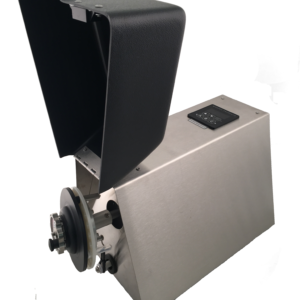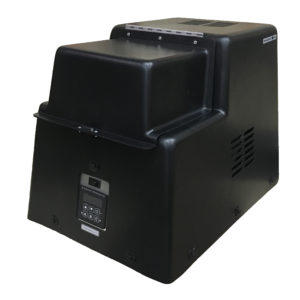PAGE Application
Showing all 2 results
-
BeadBeater
Mini-Beadbeater-24
The Mini-BeadBeater-24 disrupts microbial cells and plant and animal tissue by violently agitating four to twentyfour 2 ml screw-cap microvials containing small glass, ceramic or steel beads and 0.1 to 1 ml disruption buffer. The performance of the Mini-BeadBeater equals or exceeds that of any other type or brand of cell disrupter. Even resistant samples like yeast, spores or fibrous tissue are completely homogenized in 1-3 minutes. The non-foaming, aerosol-free method preserves enzymes and organelles. In the presence of nucleic acid extraction media such as phenol, Gu-SCN or a commercial kit solution, DNA or RNA is recovered in the highest possible yield. The method is ideal for PAGE, PCR applications, and diagnostics using antibody or oligonucleotide probes. Because the beads and vials are disposable, there is absolutely zero cross-contamination between samples – essential for PCR techniques.
SKU: n/a -
BeadBeater
Mini-Beadbeater-96
The MiniBeadbeater-96 disrupts cells and tissue by violently shaking a sample inside a classic 2 ml microvial or standard deep well microplate partially filled with tiny ceramic or steel beads. Complete cell disruption is achieved in 1 to 3 minutes of beadbeating. A common application is nucleic acid extraction. Up to 400 mg of tissue is added to a vial containing glass or ceramic beads and a nucleic acid extraction solution…the later often being purchased as part of a nucleic acid extraction kit. The synergy of simultaneous mechanical cell disruption and nucleic acid extraction in a chaotropic solution gives very high yields of high quality RNA or DNA. Most protocols developed using smaller capacity models of the MBB are transferable with little if any modification.
The MiniBeadbeater can also be used for dry grinding. In this application, ceramic or steel beads are added to to vials containing hard, dry samples such as hair, bone, teeth, seeds and minerals. Softer materials such as biological tissue, rubber or plastics can be powdered by first pre-freezing the sample to liq N2 temperatures (called Cryo-grinding). Powdered material can be safely dissolved in an organic solvent in BioSpec’s XXTuff microvials, our stainless steel microvials or Porvair’s reinforced microplates, simplifying recovery of organic analytes. A solid aluminum vial holder can be utilized to maintain cryogenic temperatures during beadbeating (see the Accessories, below).
SKU: n/a


